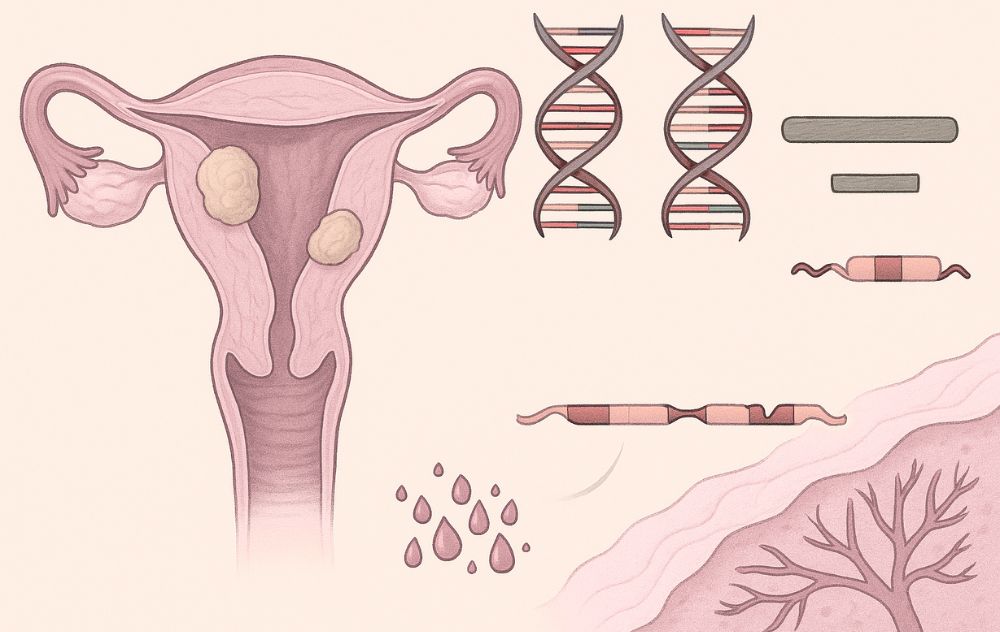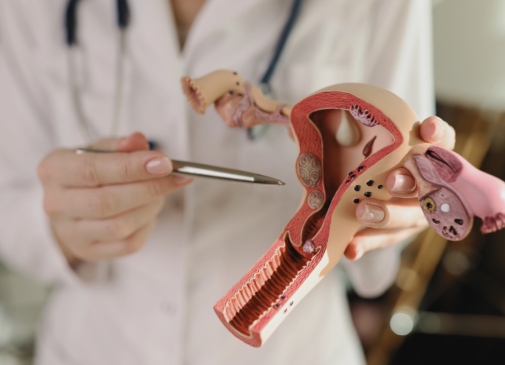
A groundbreaking study published in Communications Medicine is shedding new light on the biology of uterine fibroids and their link to heavy menstrual bleeding.
Affecting up to 80% of women of reproductive age, fibroids are non-cancerous tumors of the uterus that can cause a range of symptoms, from pelvic pain to fertility challenges. Yet, despite their prevalence, the molecular mechanisms behind these symptoms have remained largely unclear — until now.
A Systems-Based Approach: Breakthrough Study Maps the Biology of Uterine Fibroids
In the Nature.com article, they explain the below:
Researchers adopted a systems biology approach, integrating data across genetics (DNA), transcription (RNA), and proteins (proteomics). They analyzed samples from fibroid tissue, the surrounding uterine muscle, and the endometrial lining in 91 patients. This comprehensive analysis offered a deeper look at how fibroids interact with the surrounding uterine environment.
Key Discoveries
The study confirmed known mutations in the MED12 gene but also identified additional genetic players, including AHR and COL4A6, that had not been previously associated with fibroid pathology.
The data revealed that these genetic changes disrupt several key biological pathways, such as:
- Angiogenesis – the formation of new blood vessels
- Extracellular matrix organization – the structural framework that supports tissue
- RNA splicing – the process that converts genetic instructions into functional proteins
These disruptions appear to play a direct role in driving the development of heavy menstrual bleeding, one of the most common and distressing symptoms of uterine fibroids.
A New Biological Model
The researchers proposed a model suggesting that MED12-mutated fibroids can influence RNA splicing in the endometrial lining. This disruption in genetic messaging may be a key factor in why abnormal bleeding occurs, creating new pathways for understanding and potentially treating fibroid-related symptoms.
Why It Matters
This study marks a significant step toward precision medicine for uterine fibroids. By uncovering the genetic and molecular mechanisms behind the condition, researchers are paving the way for future treatments that target the root causes rather than just managing symptoms.
The findings also highlight the importance of advancing research in women’s health, a field that has historically been underfunded and under-researched, despite conditions like fibroids affecting millions of women worldwide.







